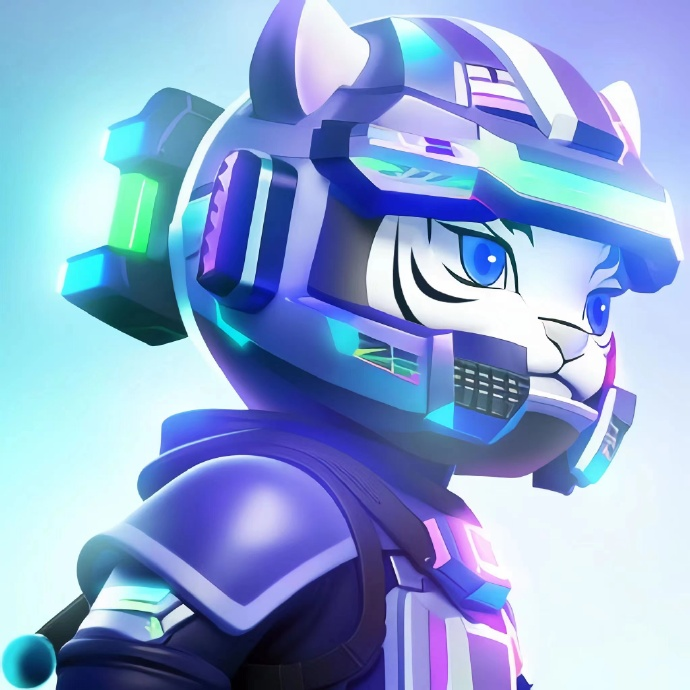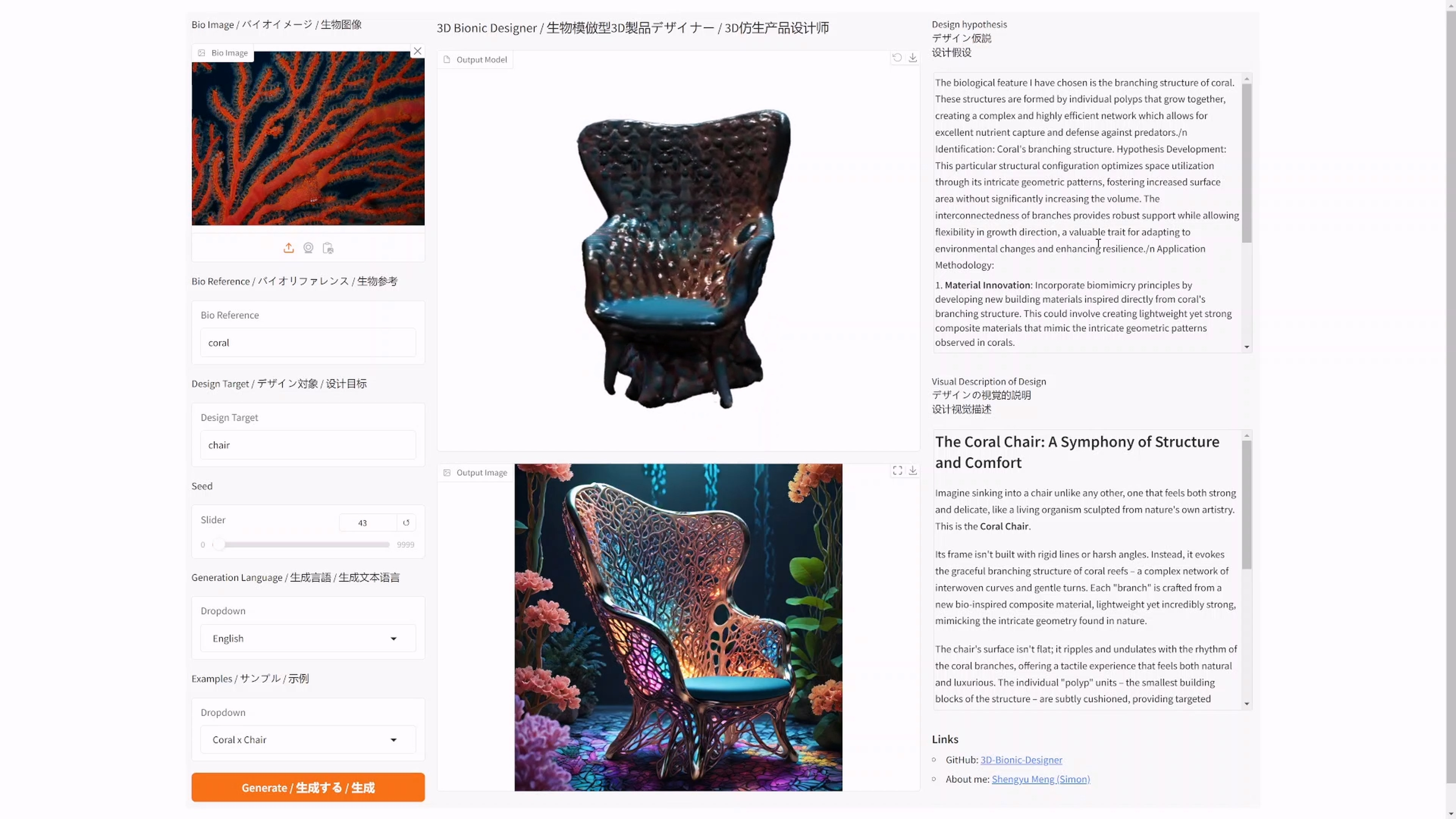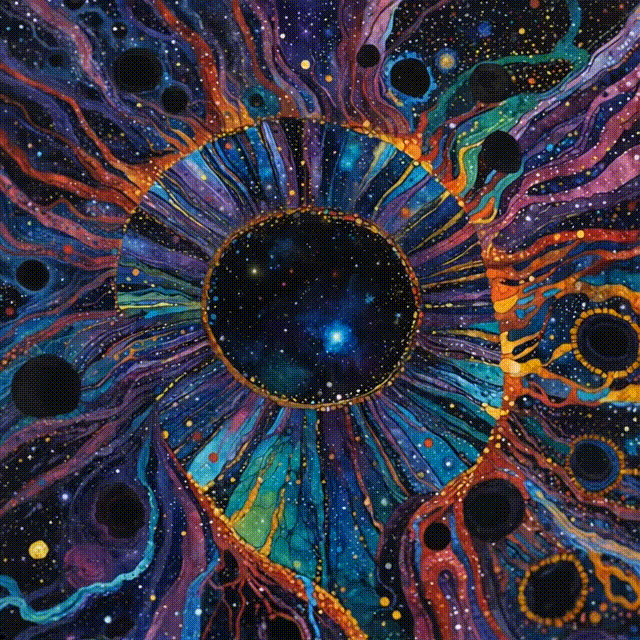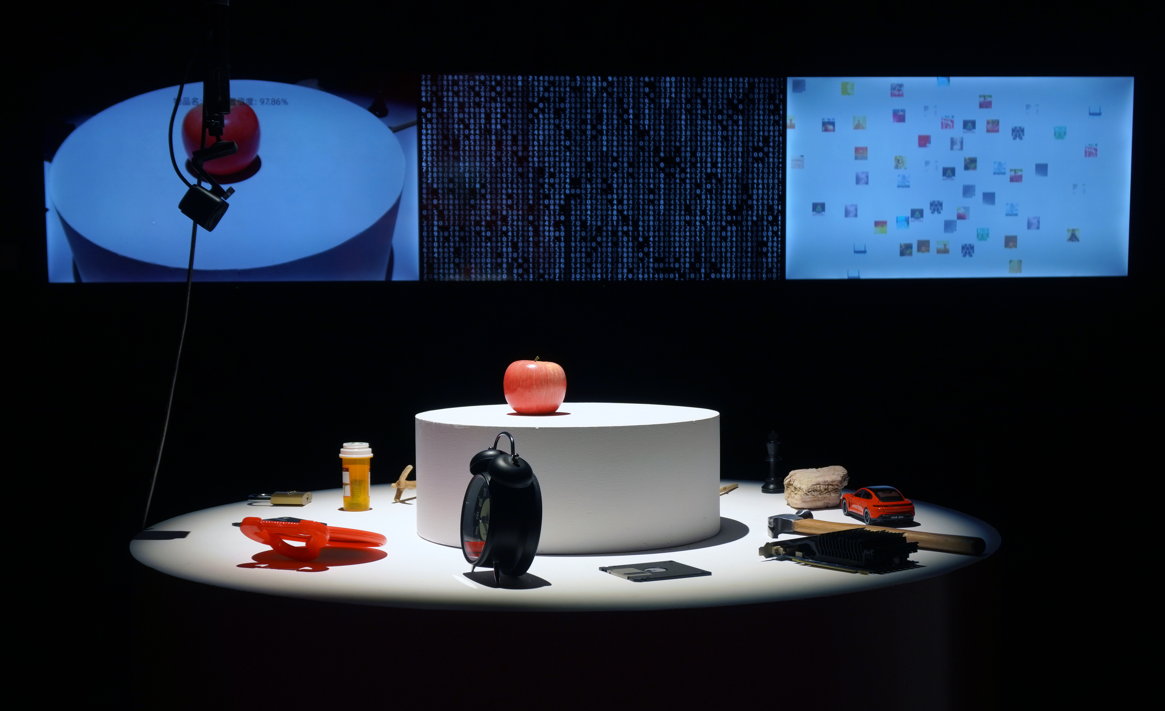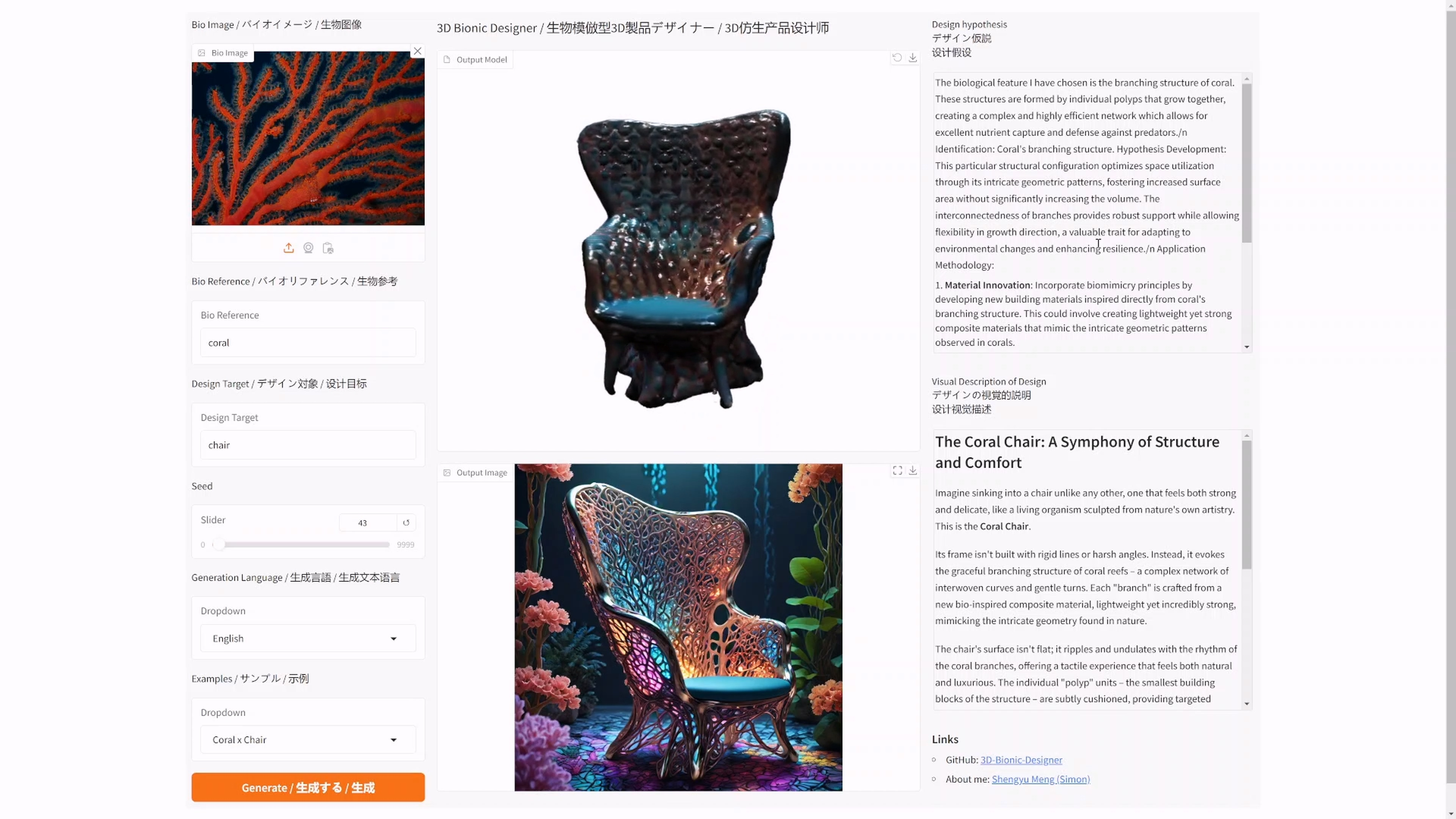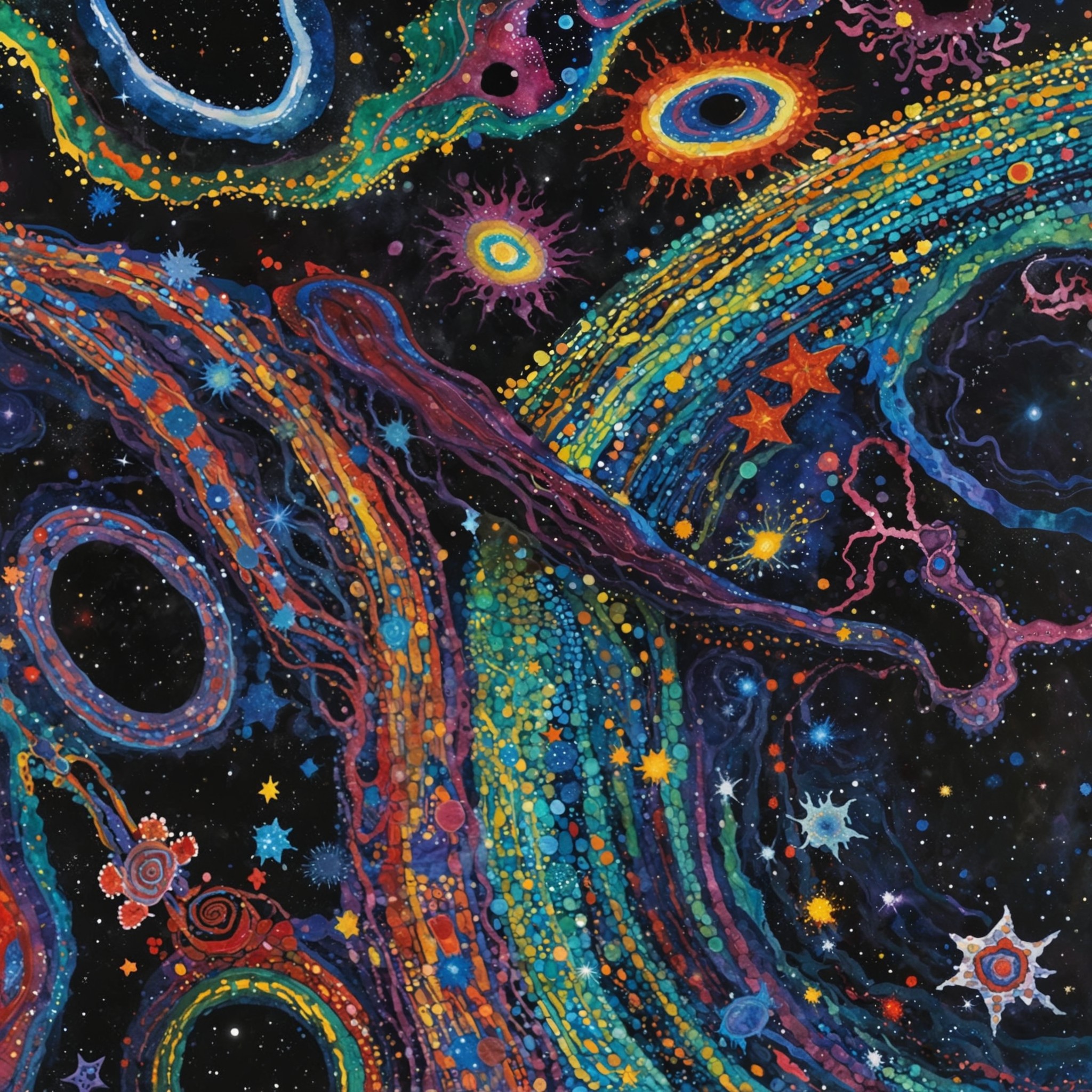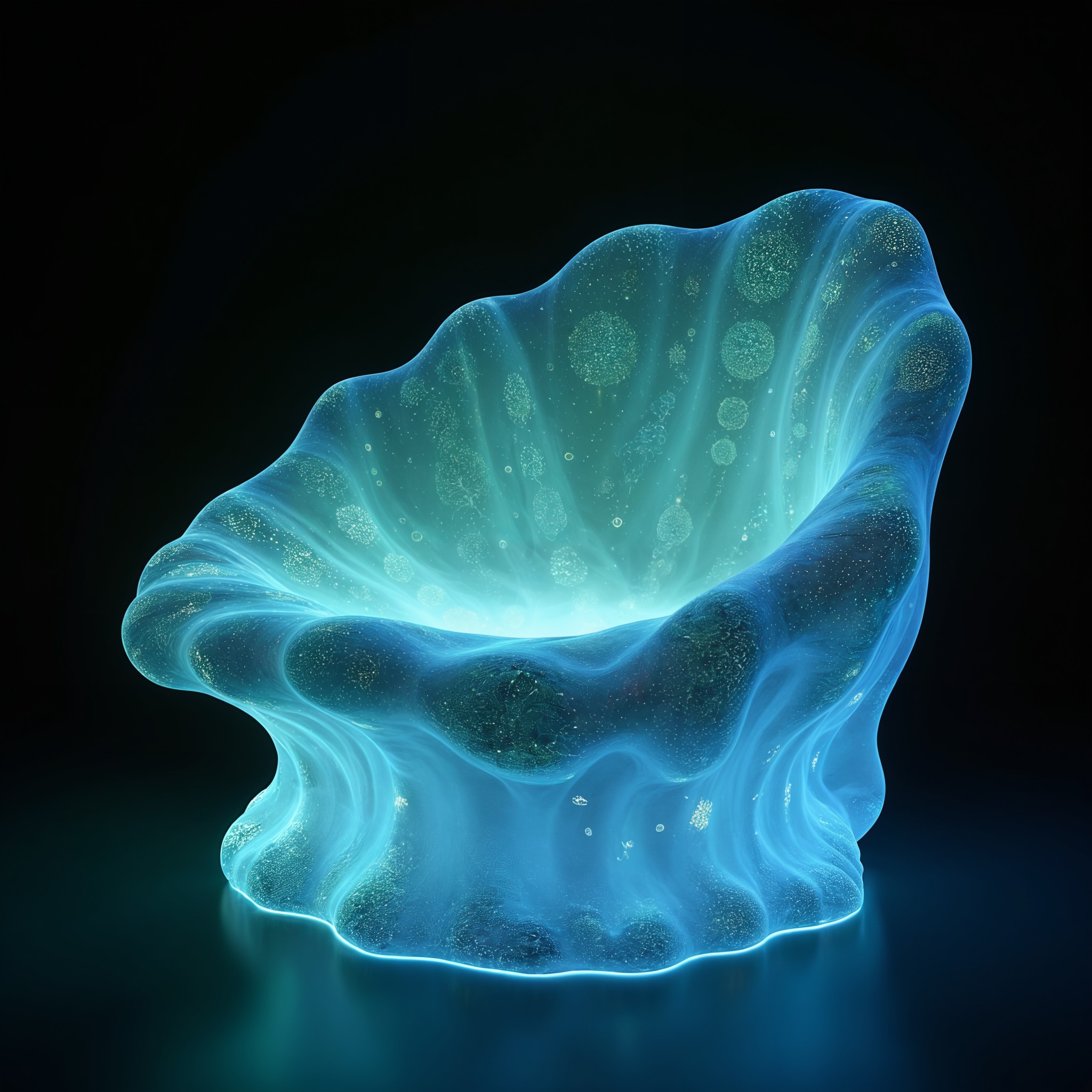date
Feb 17, 2023
type
Post
status
Published
slug
AI4Chevrolet-en
summary
The power of AI creation tools is well-known, but pinpointing customer needs among a vast array of possibilities and ensuring the output meets industrial standards remains a challenging task. My collaboration with Chevrolet and Quanpingben Shi has proven that it is feasible, yet it requires the deep involvement of designers who understand AI.
tags
项目
教程
创作
展览
Project
Art
AI Animation
category
Project
icon
password
URL
February 17, 2023 • 8 min read
by Simon's Daydream, mp.weixin.qq.com • See original
The power of AI creation tools is no longer a secret, but pinpointing customer needs amidst a vast sea of possibilities and ensuring the output aligns with industry standards remains a challenge. My collaboration with Chevrolet and Quanpingben has proven that it's feasible, albeit requiring deep involvement from designers who understand AI.
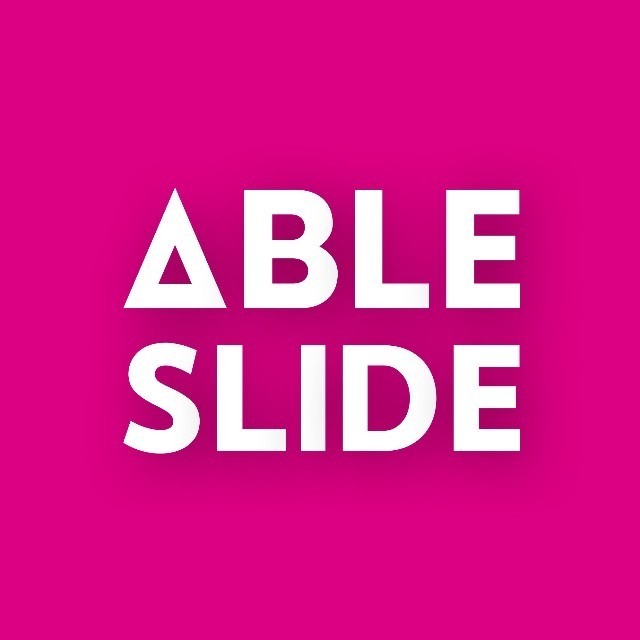
AI has made many creative ideas tangible. For instance, when we asked how New Year celebrations might look in a future world, ChatGPT provided us with an answer:

Perhaps textual descriptions are not specific enough, so at the beginning of this year, we teamed up with Chevrolet to use AI to draw out more wondrous visions for a future New Year celebration.
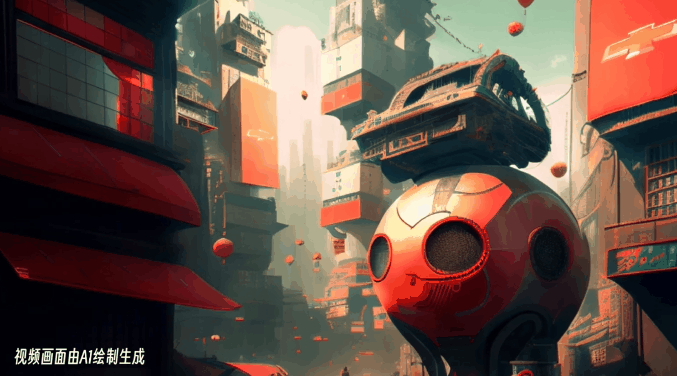
Unlike before, in this project, we handed over more control of the results to AI.

Finding Marvelous Answers to Real-World Needs in the AI Virtual World
At the start of the project, the client wanted us to generate a new image based on the existing Xuewei IP character, leading us to explore a future world.
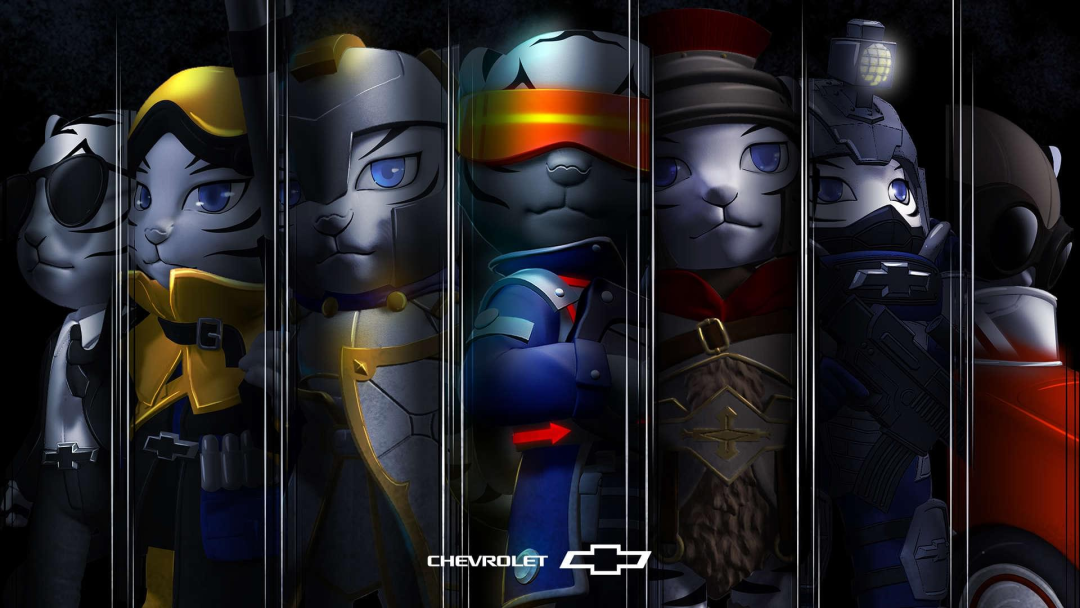
The existing Xuewei IP character by Chevrolet
Creating something "out of nothing" based on an established image is no easy task.
As a navigator between the real and virtual worlds, guiding us into the future, his appearance needed to fit the real-world setting while also brimming with the surprises of a futuristic world. Therefore, we put a lot of thought into the design generation.
How to better fit the real-world setting? To capture the characteristics of Xuewei more accurately, we asked the client for various 2D materials, physical figurines, and a large amount of other resources related to Xuewei:
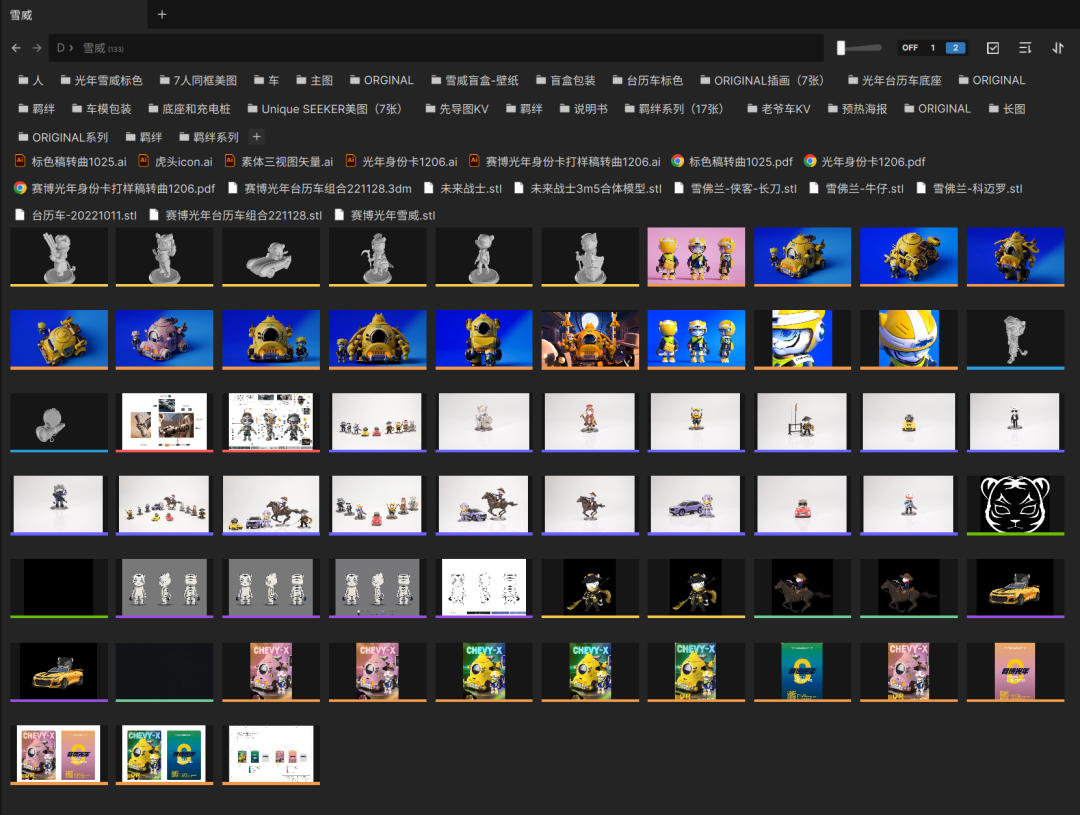
A 6.9GB package of material
Incorporating the style features of a navigator, we used keywords like futuristic, virtual, and network, and from the 6.9GB of massive data, we finally selected the following 59 images as training materials:
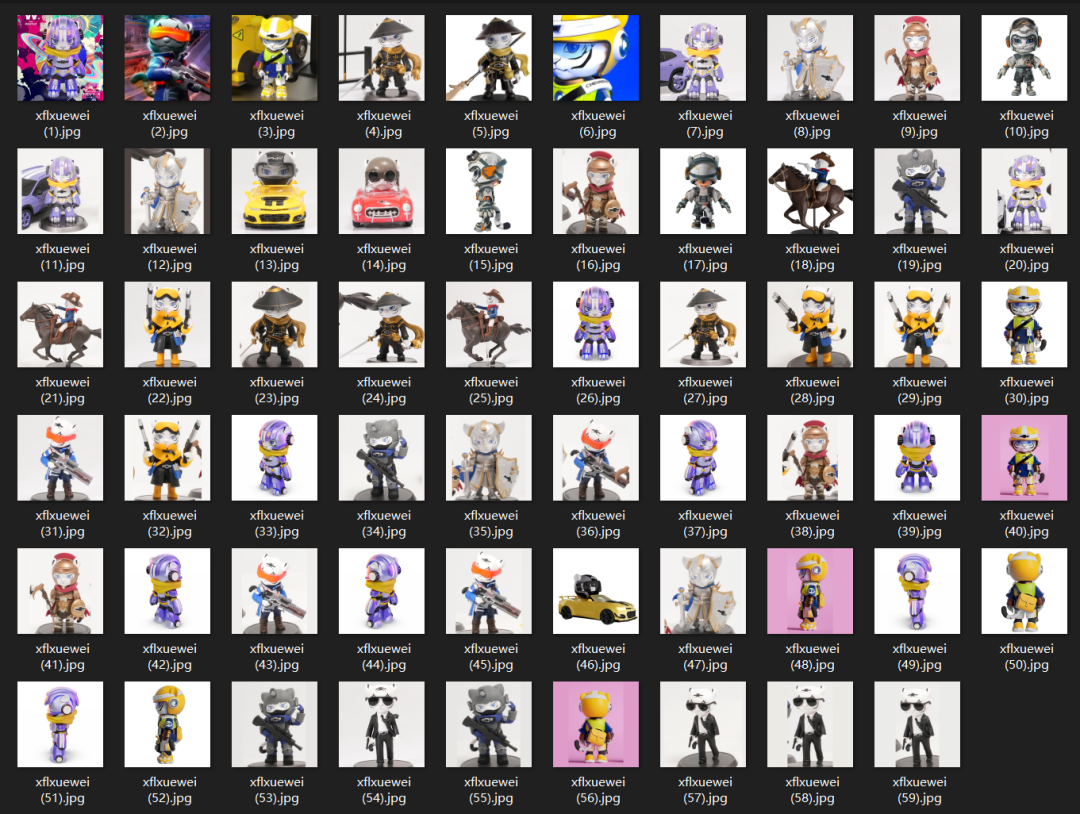
After continuously fine-tuning the Xuewei materials and experimenting with different training parameters and base model combinations, we successfully trained an AI model on Stable Diffusion that could stably generate Xuewei's image.
This means that with this model, we can input different keywords to generate Xuewei in various styles. Here's a demonstration of the results:
With the model trained, we had only completed the first step of the requirement. The next challenge was: What kind of image would be closer to the need? How to stably generate a new IP character with a futuristic and virtual feel?
To address this, we tried adding different keywords on top of the model, embarking on a long journey of style exploration:
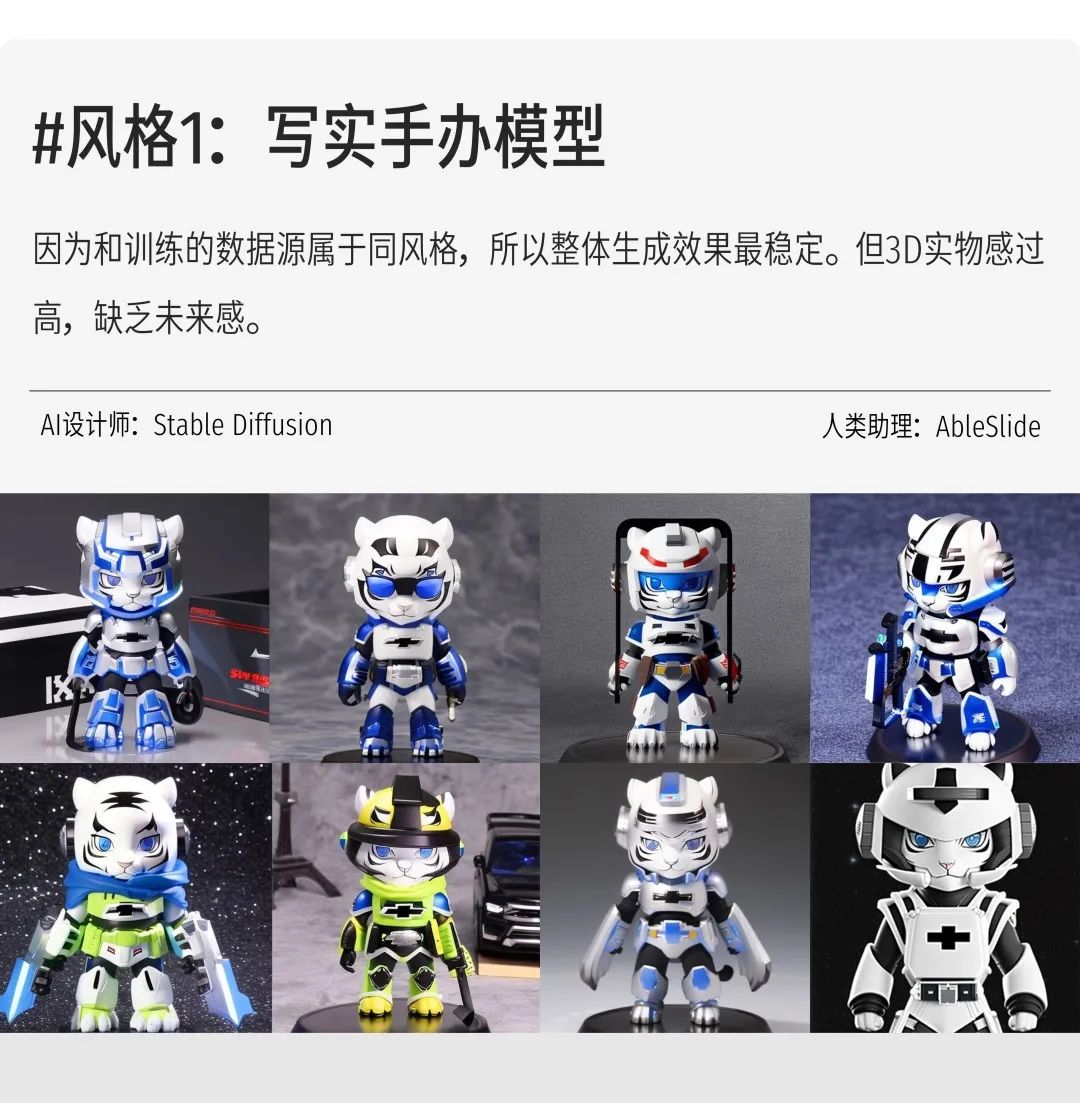
- Descriptive keywords:**cartoon white tiger toy figure in the style of xflxuewei
- Negative keywords:**yellow, pink, purple, orange, croci, neon
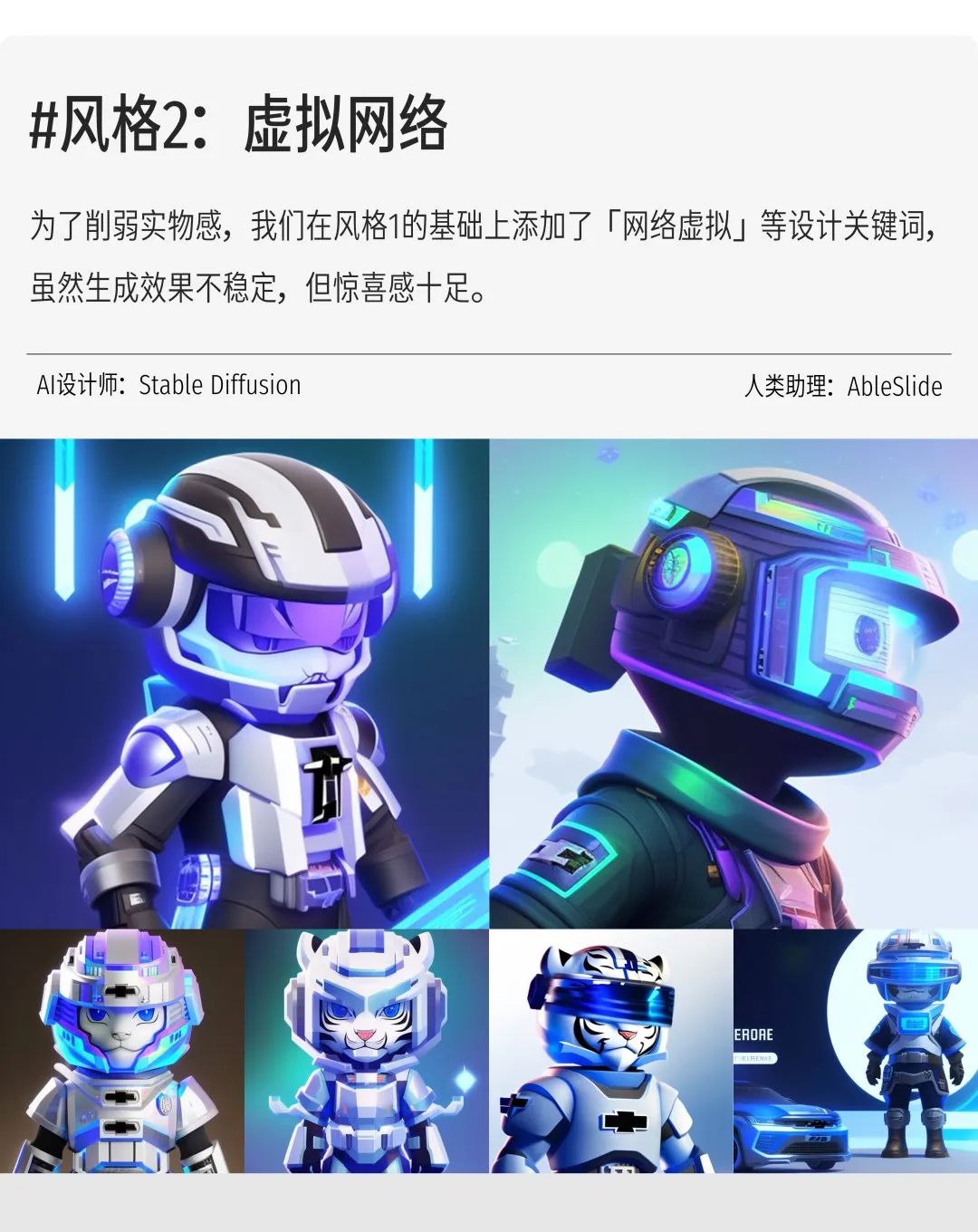
- Descriptive keywords:**portrait of white tiger xflxuewei, covered with wireframe grid, in glitch style, HUD, scanline, glitch art, futuristic, virtual, Virtual Reality
- Negative keywords:**yellow, pink, purple, orange, croci, neon
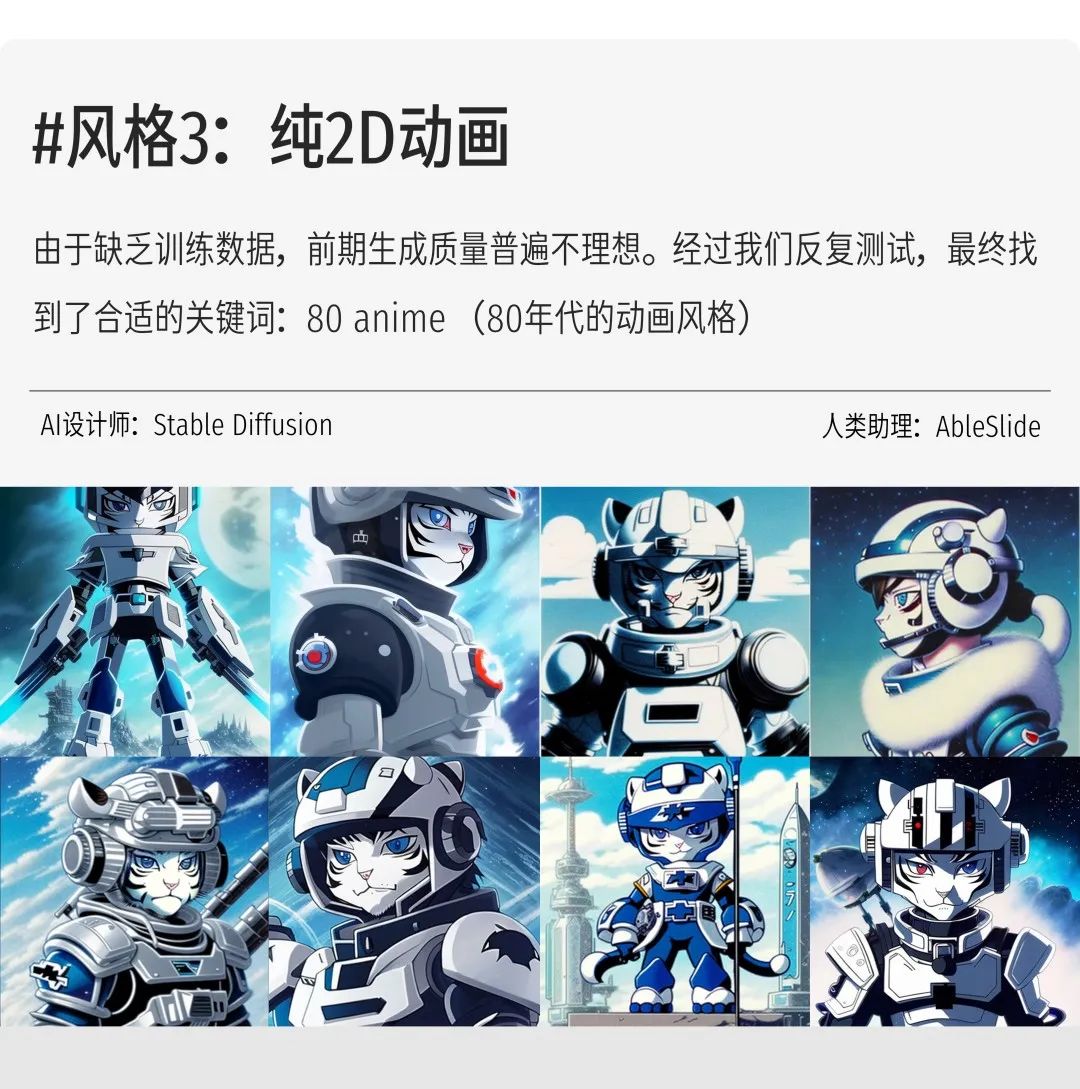
- Descriptive keywords:**white tiger figure xflxuewei, 2D, 80s anime style, crew member piloting, Vintage 90's anime style, 80s sci-fi retro anime, intricate details, bionic, highly detailed, digital art, 8k, line art
- Negative keywords:**(3D digital art), yellow, pink, purple, orange, croci, neon
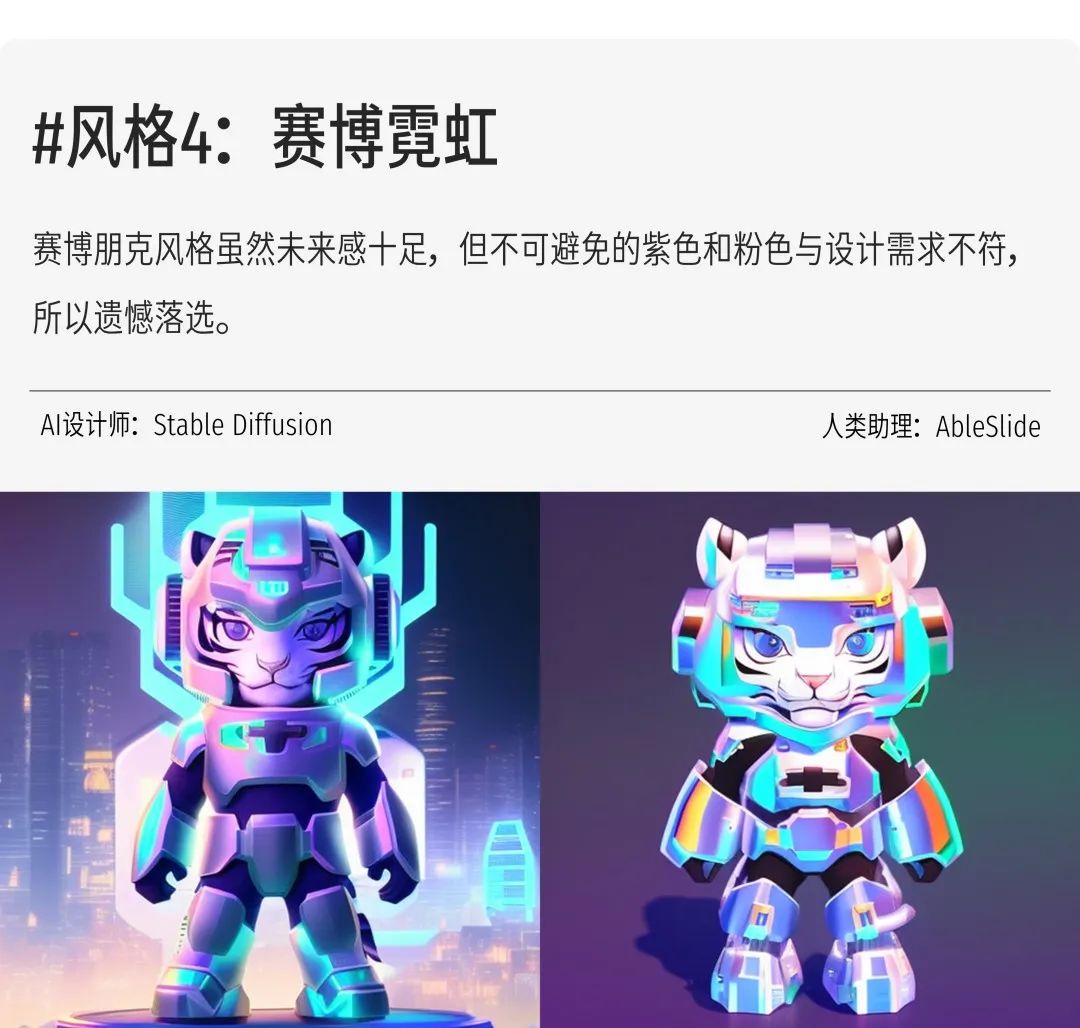

- Descriptive keywords:**cartoon white tiger toy figure in the style of (xflxuewei:0.9) and (amorphous blobs of shimmering colour:1.05), deep astral cosmic background, experimental 3D render
- Negative keywords:**yellow, pink, purple, orange, croci, neon
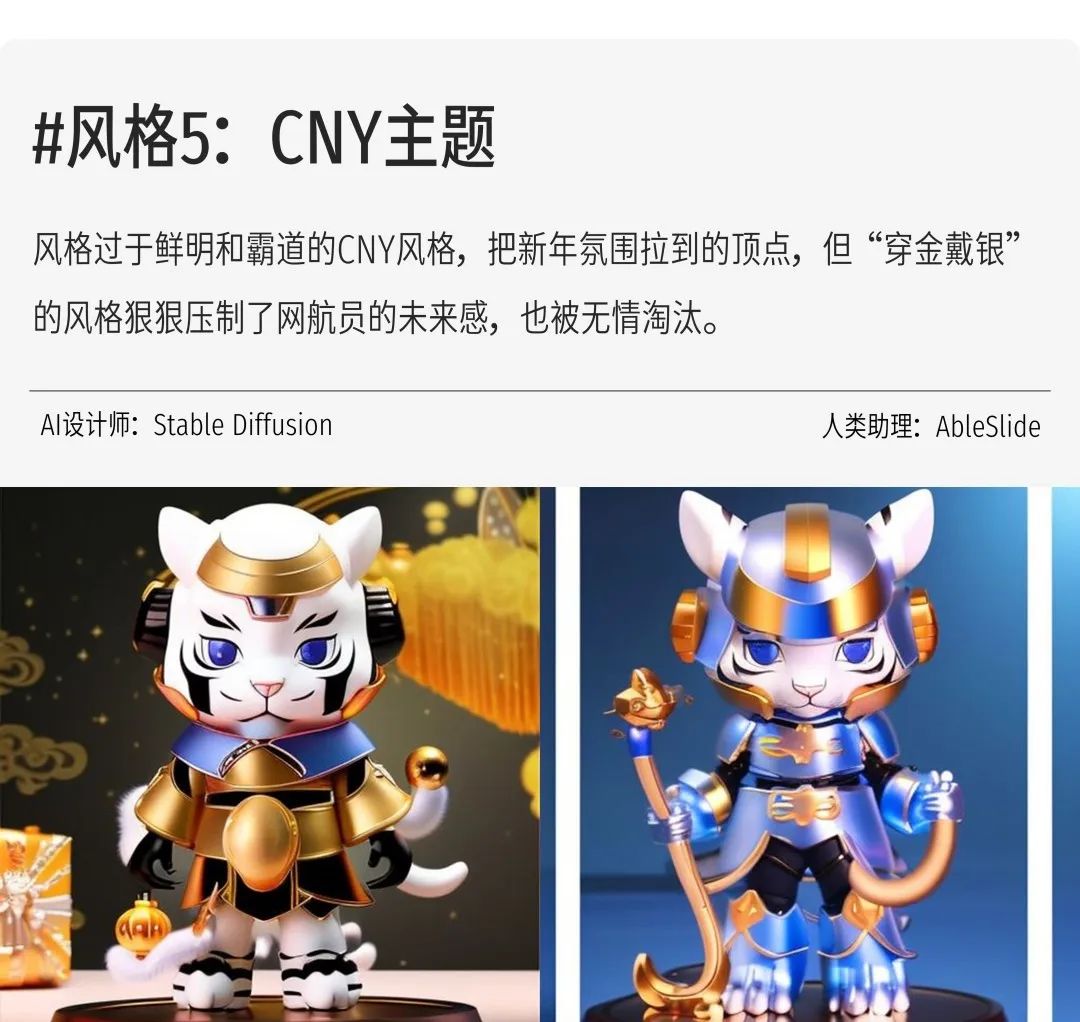
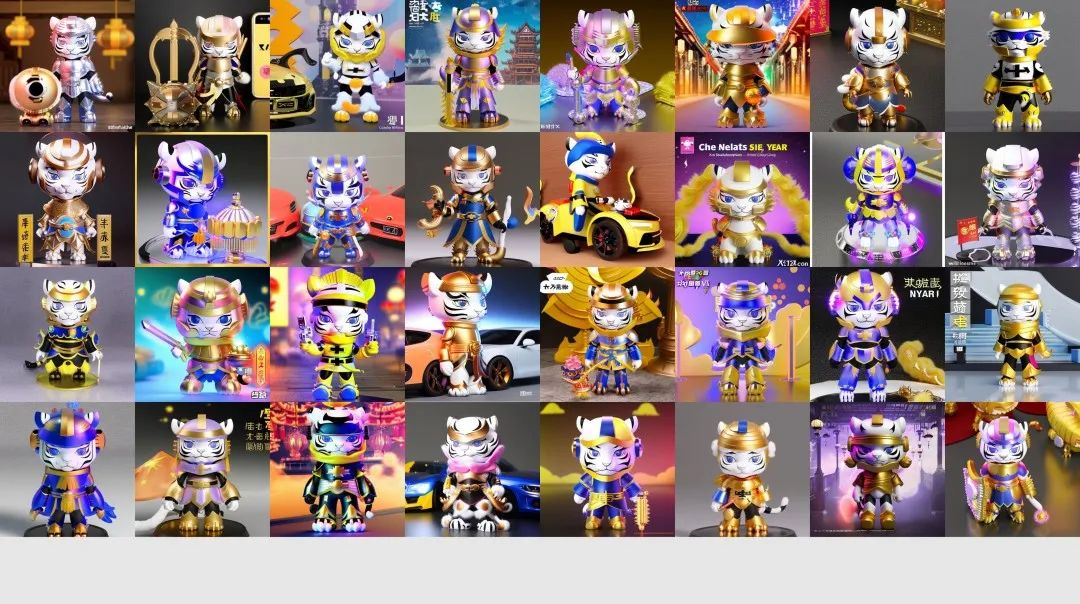
- Descriptive keywords:**cartoon white tiger toy figure in the style of (xflxuewei:0.9) and (Chinese New Year:1.1)
- Negative keywords:**yellow, pink, purple, orange, croci, neon
Considering the adaptability of the content later, we ultimately chose the "virtual network style" as the main design direction and made adjustments based on the following image:
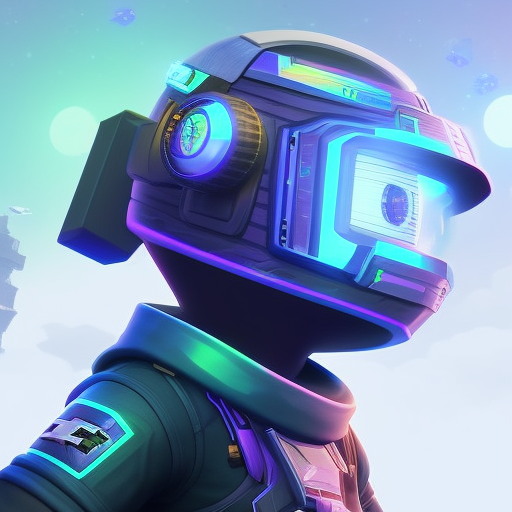
The style was set, but another challenge arose.
The style of the character chosen by the client was too dissimilar to the tiger appearance of Xuewei. To make the established image more similar to Xuewei, we came up with two solutions:
- Option one:**Erase the face in the above image and regenerate it within a limited area to see if it could produce a suitable Xuewei face. (This is a common technique in AI generation known as inpainting)
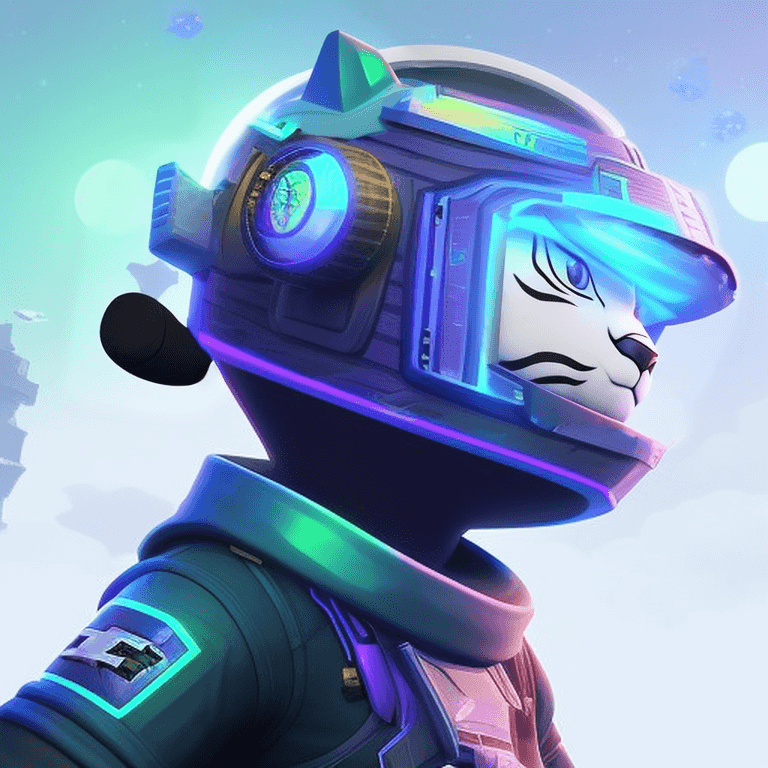
- Option two:**Feed the original image to the AI and have it generate similar images based on the style of the original. (This is a common technique in AI generation known as image-to-image)
In comparison, option two provided the AI with more room to play, and it did not disappoint, producing even more surprising images:
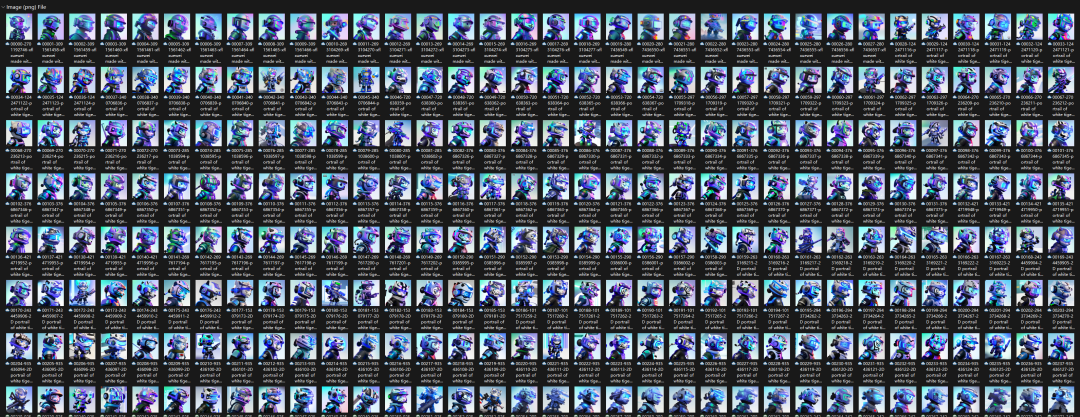
Ultimately, among the thousands of candidates generated, this navigator stood out.
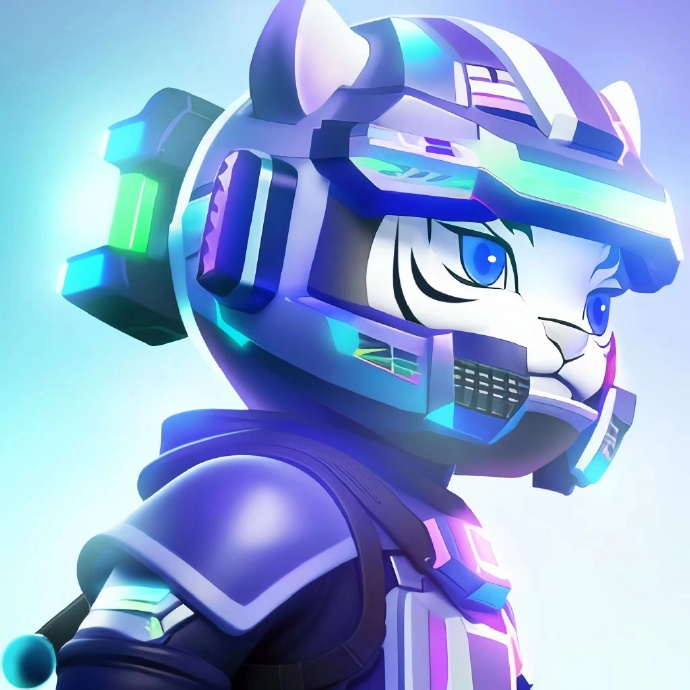

With AI as Our Wings
Providing It with Exploration Routes
When AI drawing is truly applied to commercial projects, generating satisfactory static images is already quite challenging, but our exploration didn't stop there.
Led by the navigator Xuewei, we also presented a fantastical vision of the New Year in a future world through video:
From a dazzling underwater New Year, a serene forest New Year, a bustling cyber New Year to a mysterious space New Year, how did we work with seemingly uncontrollable AI to successfully meet the client's specific needs and present unknown scenes?
Next week, stay tuned to AbleSlide, where we will reveal the entire creative process of "expanding the client's minimalist requirements into the wonders of a future world."

In the Unrestrained Era of AIGC
Thoughtful Humans Remain in Control
Over the past year, AI drawing has brought us endless surprises.
Just by entering a few keywords, one can create dreamlike artwork, and the era of "painting with words" seems to have truly arrived.
@Simon_阿文·A field of sunflowers twinkling under the starry sky
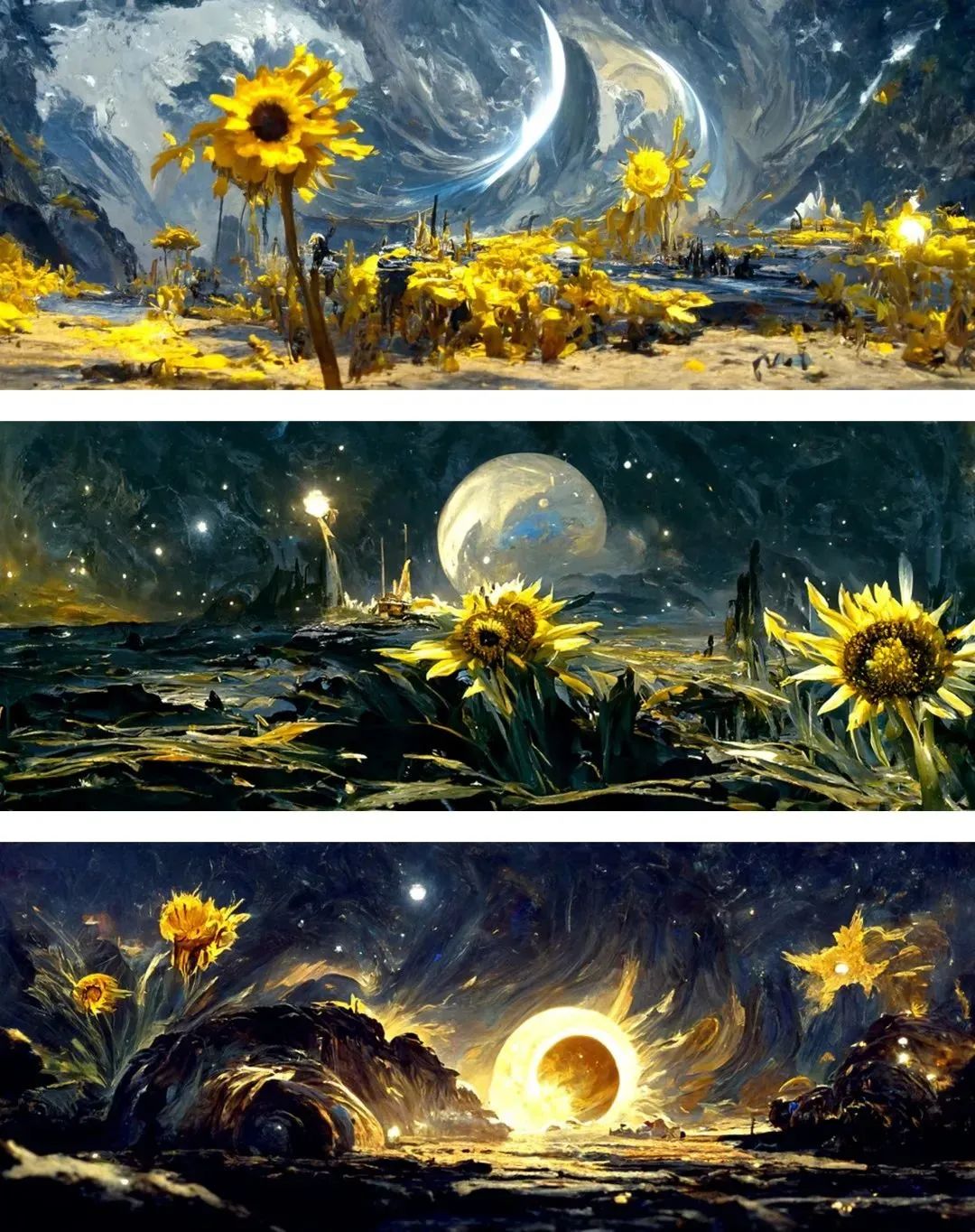
But these surprises have also sparked more anxiety: #designersbecomingjobless became a trending topic associated with AI drawing. Are we really going to be replaced by AI?
Not exactly.
Relying on all the existing image libraries on the internet, AI indeed possesses powerful creativity, but at the same time, it acts like a distinctive artist. Getting it to follow specific instructions obediently may well be the key to AI drawing in practical applications.
So, in what seems to be an uncontrollable creative process, the allocation of resources still remains in our hands. Just as in this "exploration journey," the bumpy road to generating the Xuewei navigator image illustrates the importance of human intervention.
From initial exploration to integrating AI into daily workflows, AI has to some extent broadened our sources of inspiration and improved production efficiency.
▌Distinctive Artwork Generated by AI
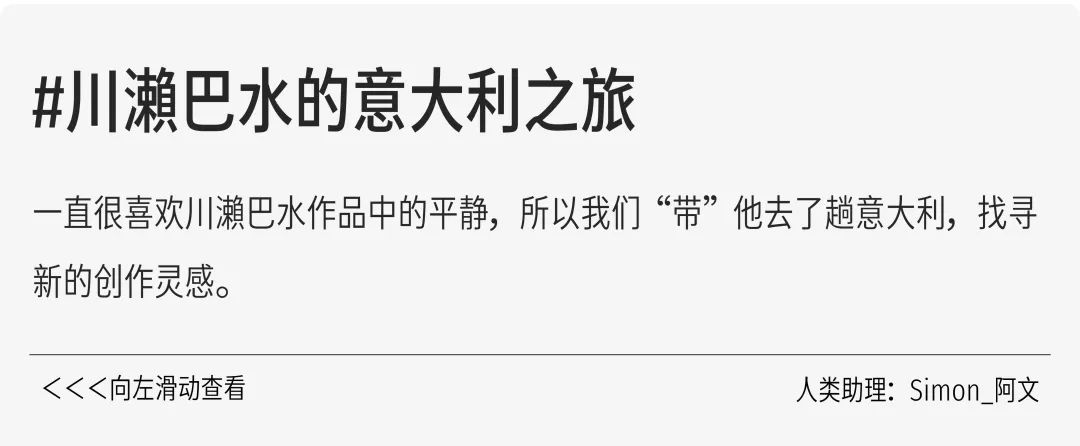
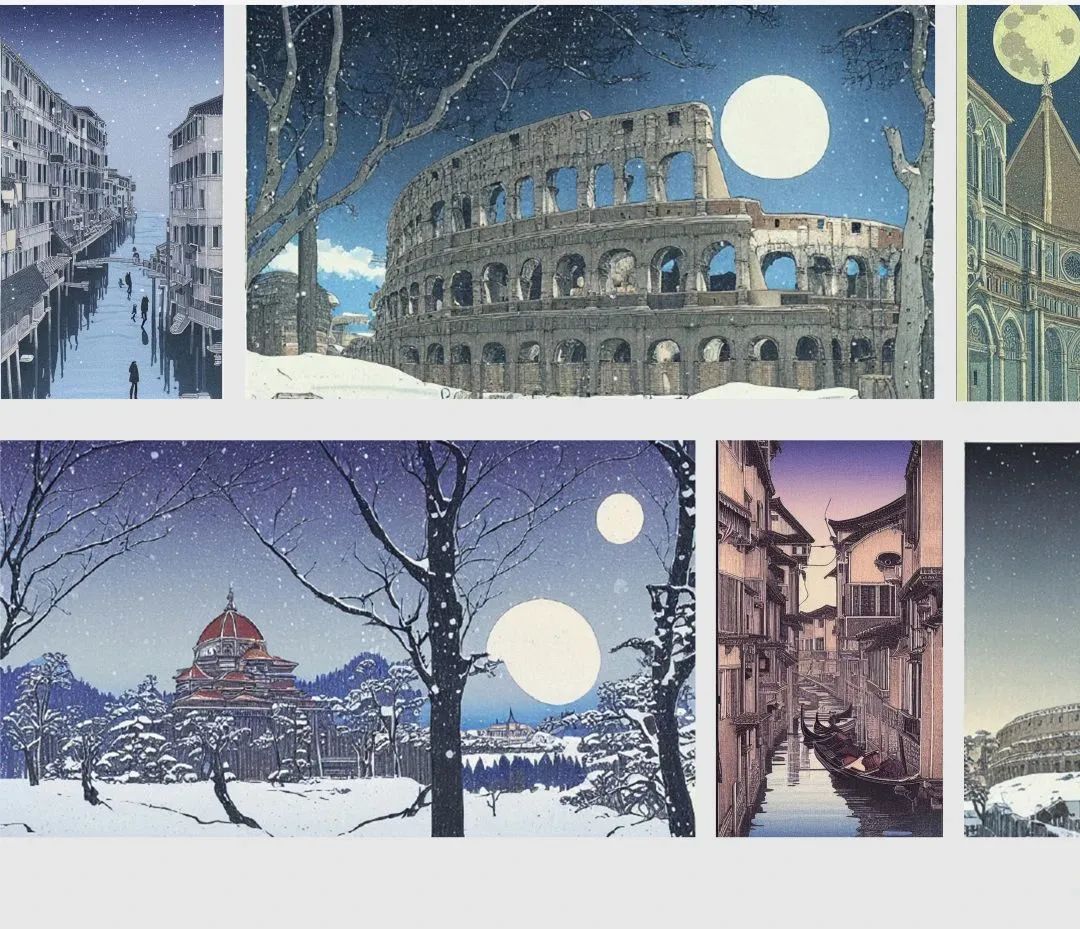
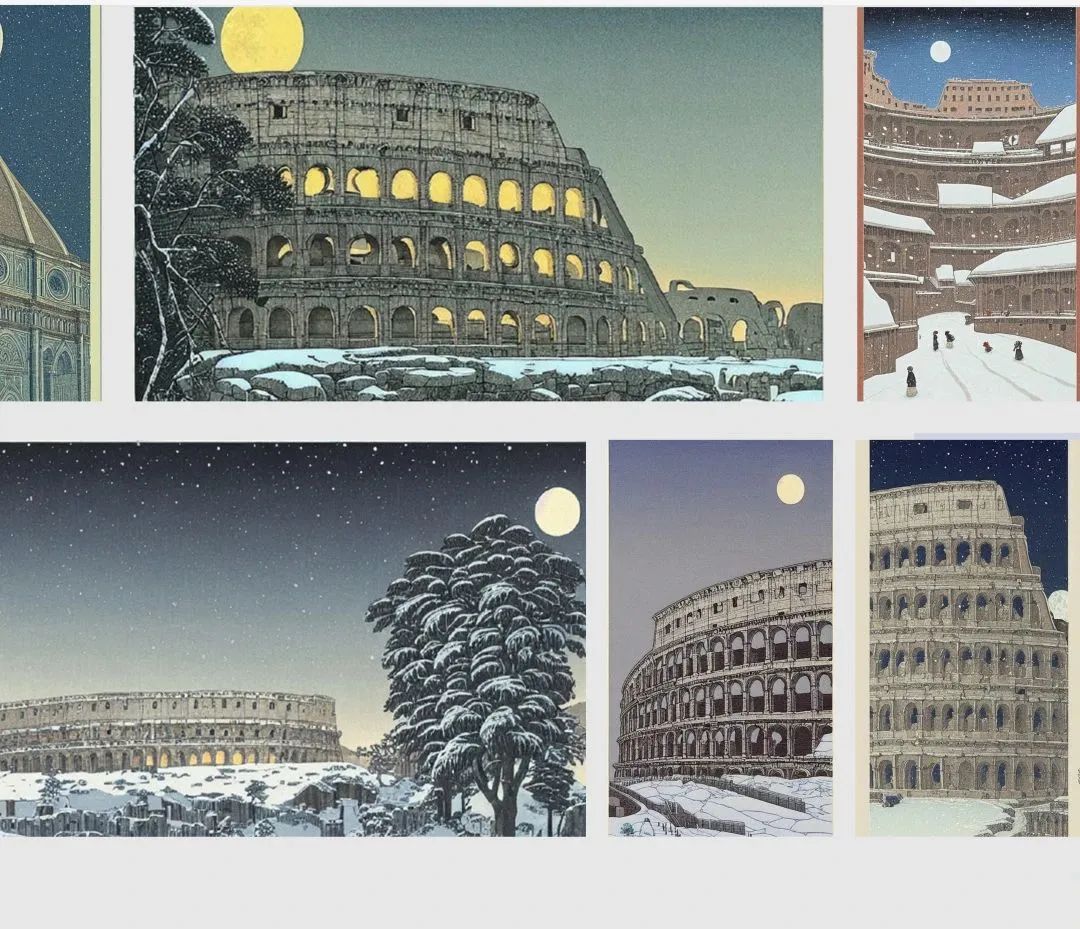
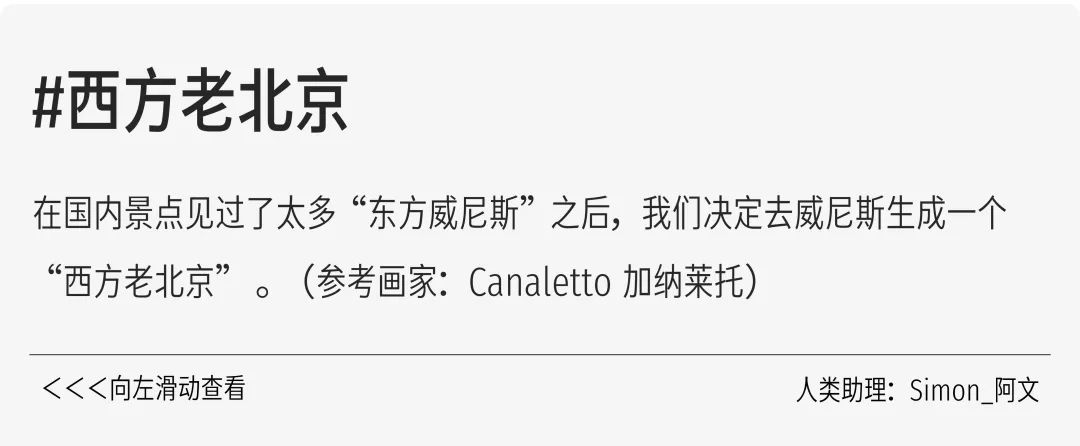
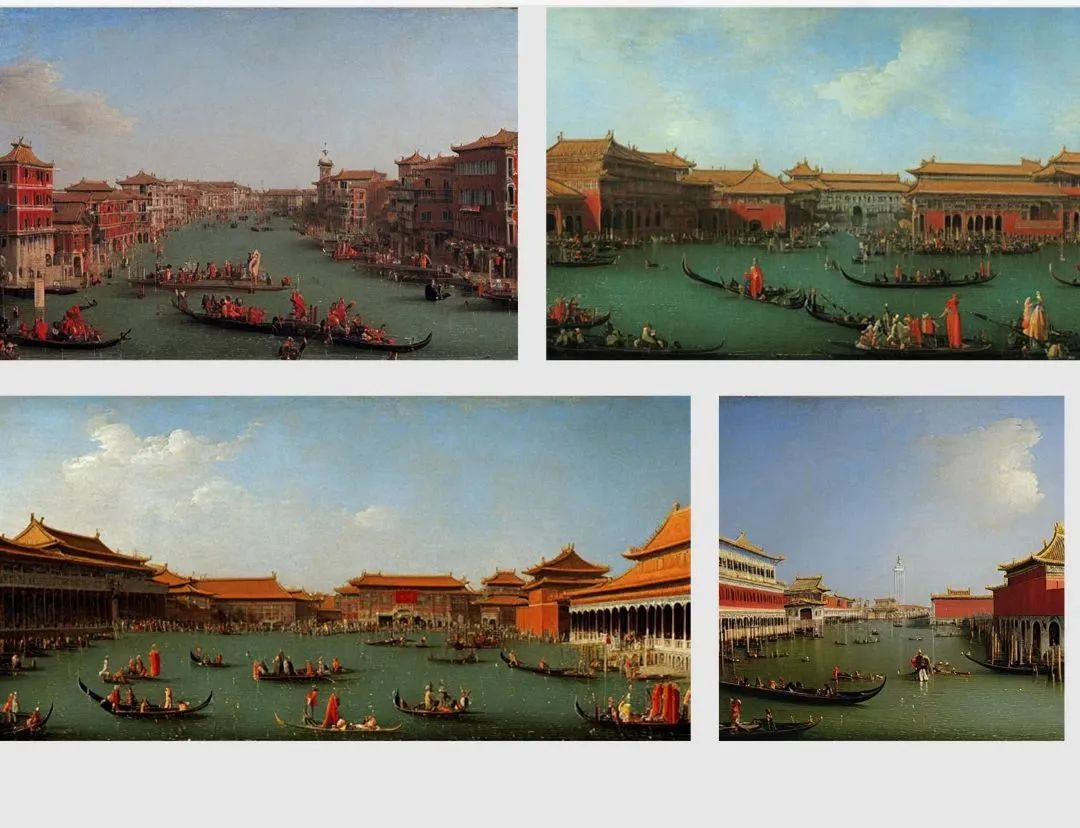
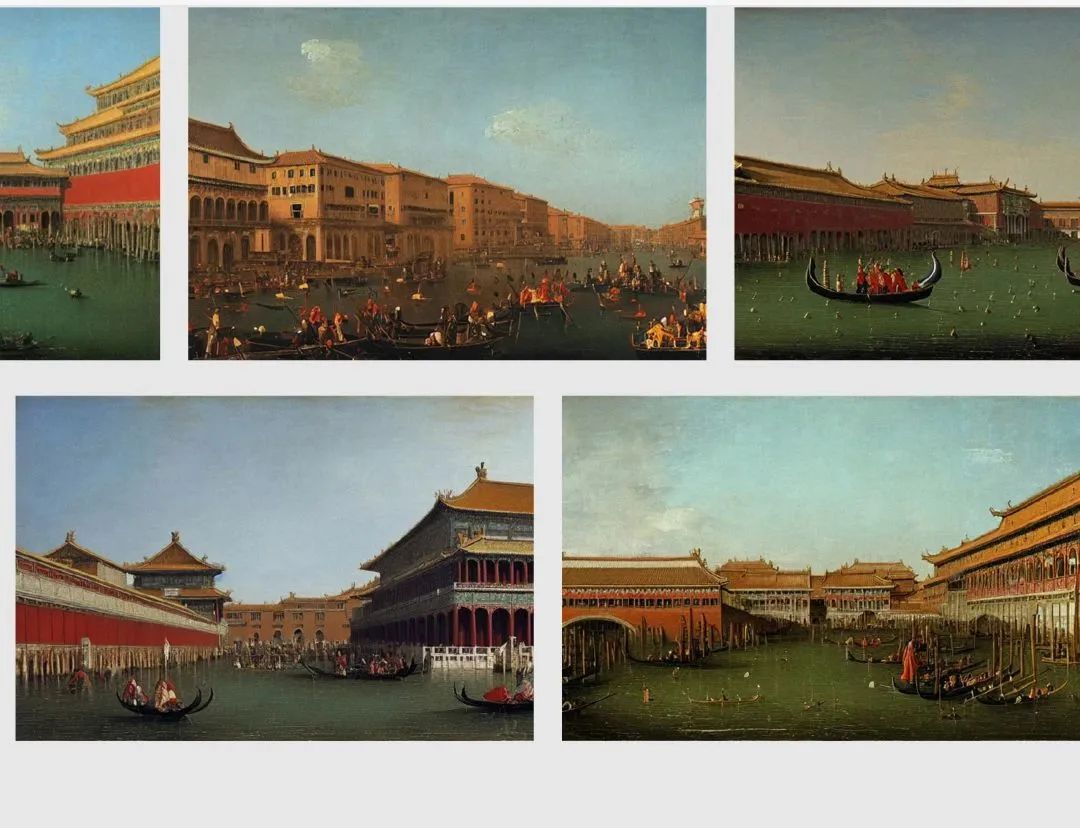
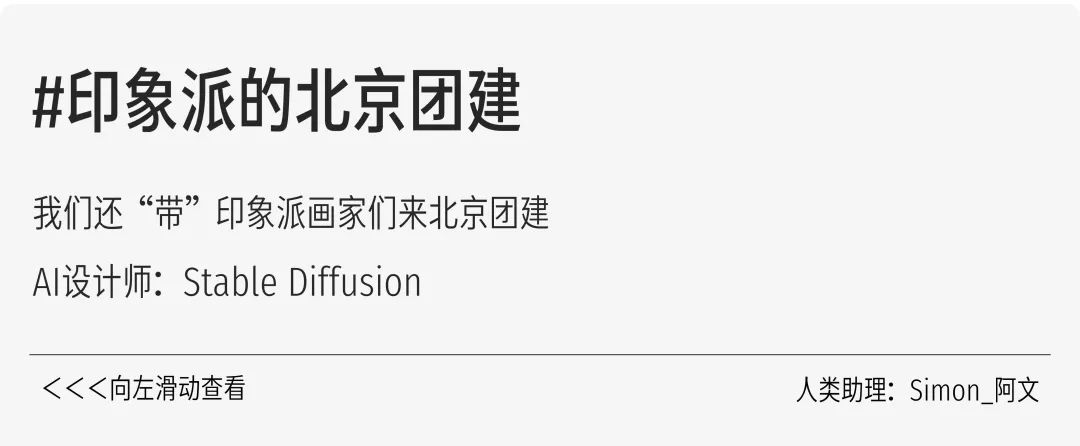

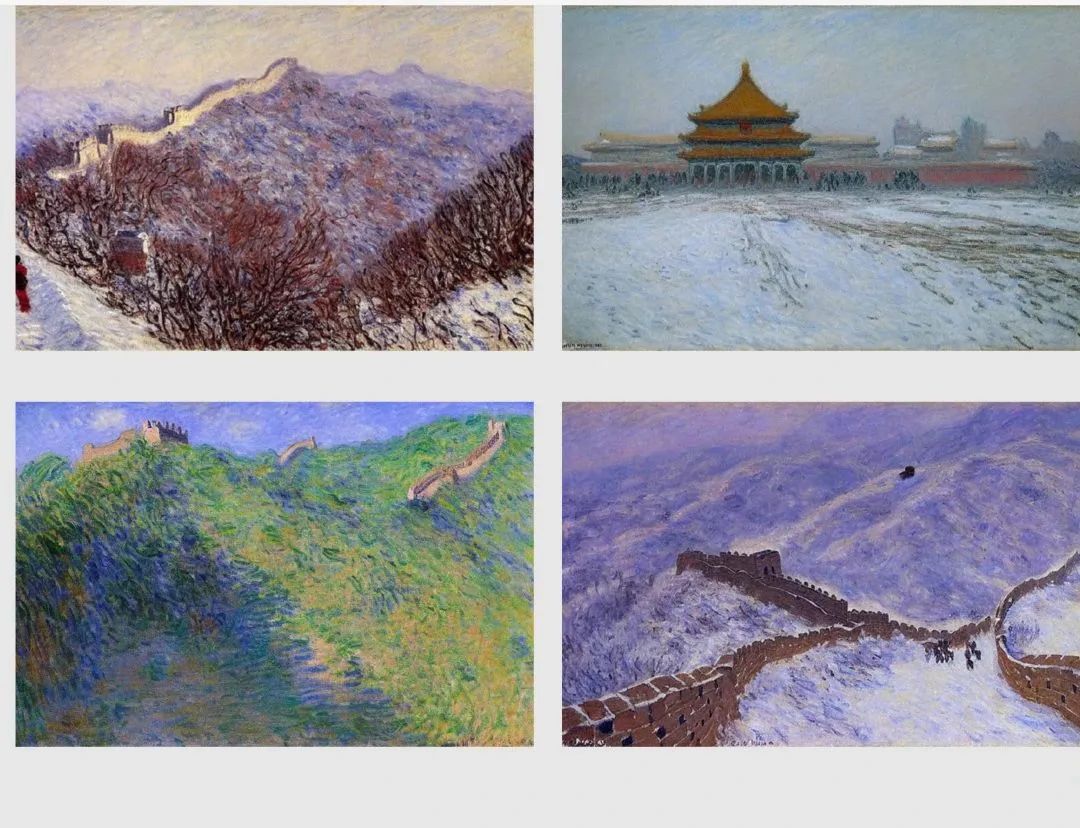
▌Integrating AI Drawing into Workflows
The inpainting feature of DALL·E greatly helped us bypass the tedious process of masking, solving the problem of messy raw materials more efficiently and intelligently:
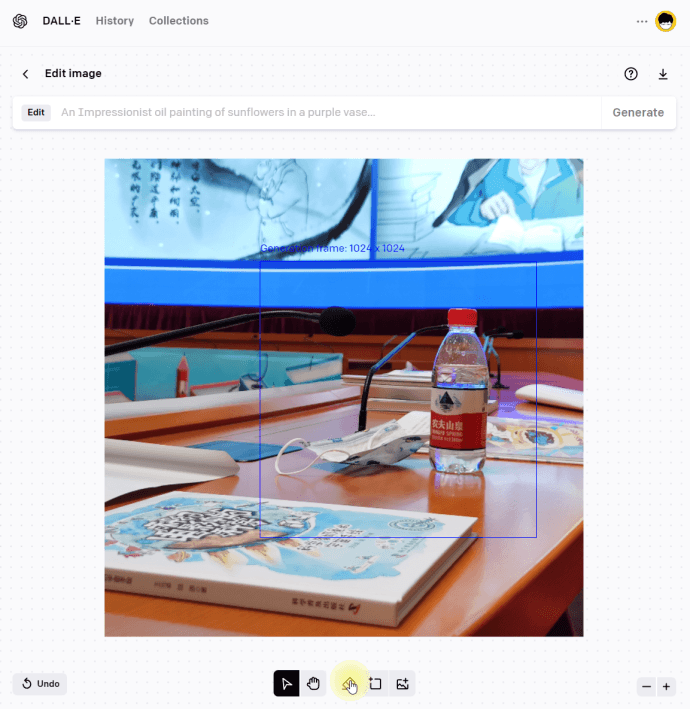
We also combined AI drawing with software such as Photoshop and Blender, making it easier to create more original materials:
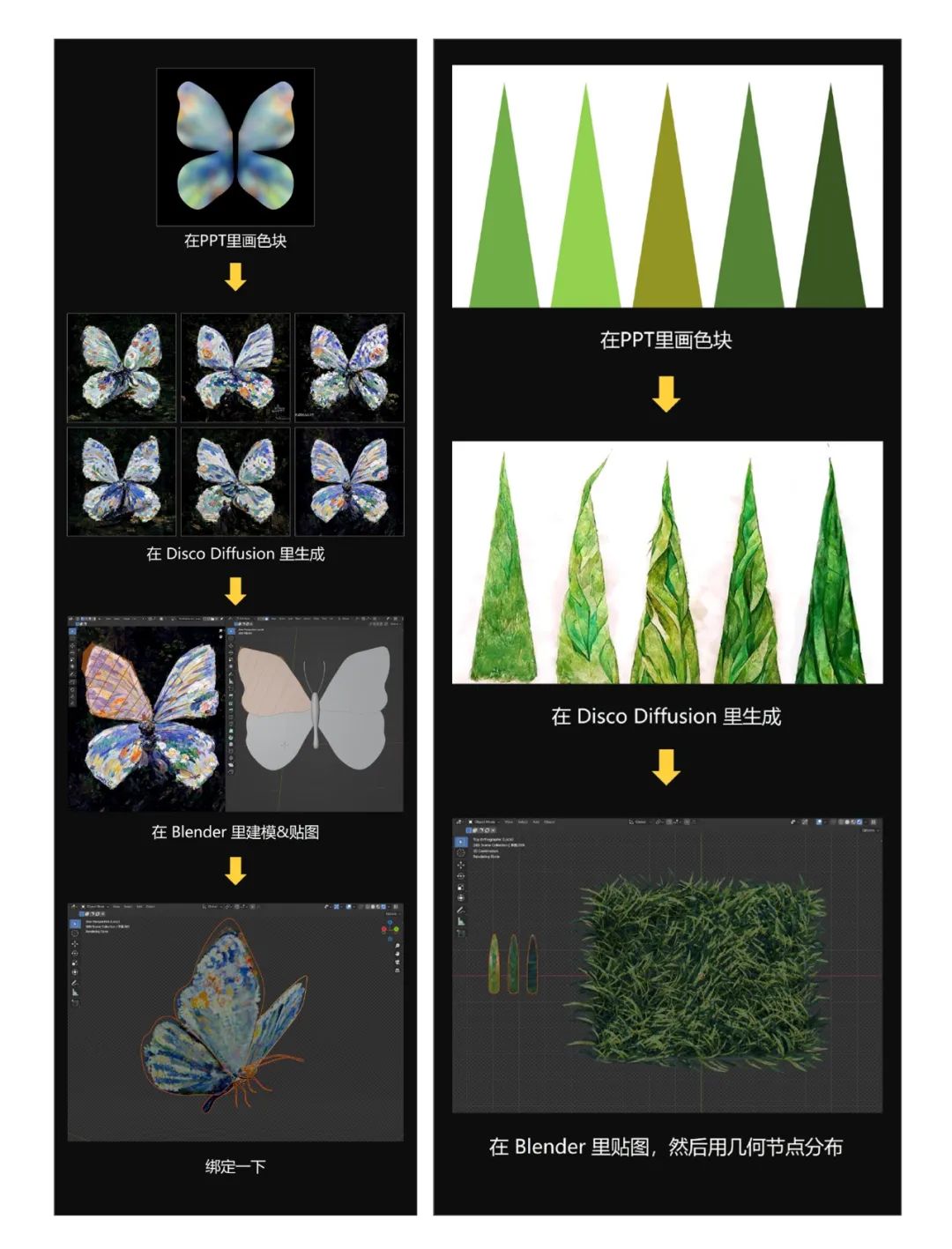
It was through continuous trial and error, setbacks, and adjustments that we were able to better understand AI, enabling high-level cooperation in commercial projects.
- 作者:Simon Shengyu Meng
- 链接:https://simonsy.net/article/AI4Chevrolet-en
- 声明:本文采用 CC BY-NC-SA 4.0 许可协议,转载请注明出处。
相关文章

